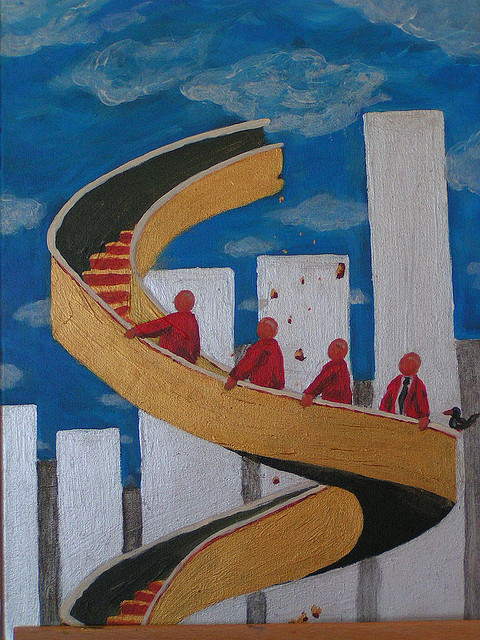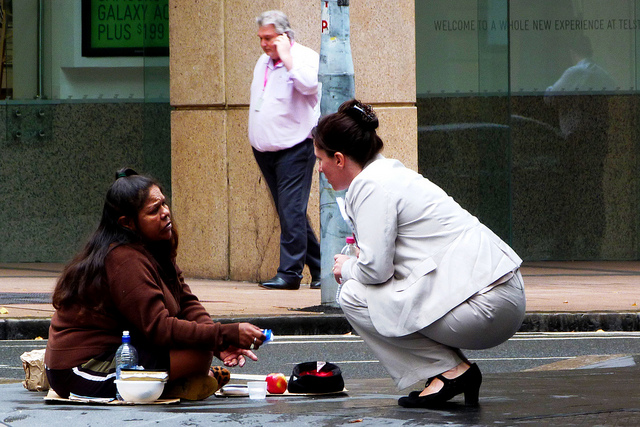blog
Leaders need to become cross-culturally effective in our changing world
Workforces everywhere are becoming increasingly diverse. Globalisation is becoming more pervasive in organisational strategies and their implementation, more national cultures are coming together in work contexts, generational characteristics are becoming more and more clearly differentiated, women are more aware of opportunities at senior levels (even if for the moment numbers of women at these levels remain low), and technology is differentiating skills groups. In this scenario leaders increasingly need to hone their cross-cultural effectiveness.
The executive’s reactions to their own impact
Executives who are taken by surprise at the impact or interpretation of their actions or words may not have taken cultural issues into account. In my experience their reactions to this surprise can range from irritation to curiosity, and from active engagement in cultural education to passive aggression (or even simply aggression), which in turn can lead to conflict, disruption, ruptures in teams and jeopardised client relationships. Enhancing their capacity to work effectively in cross-cultural environments leads directly to raised performance levels for both leaders and their teams.
Managing cultures: working with difference
Cross-cultural leadership is about working with difference, and capitalising on those differences to release a maximum of capability from the workforce. When executives lead globally dispersed or simply multicultural teams, or are leading through international mergers, acquisitions and joint ventures, they have the complex task of managing cultures.
Where cultural differences show up
Geert Hofstede defines culture in his seminal work ‘Culture’s Consequences’[1] as ‘the collective programming of the mind that distinguishes the members of one group or category of people from another’. While Hofstede’s focus was diversity across nations, his dimensions of culture can relate also to, for example, differences in gender, generation, organisation, sector, skill and personal style. Global and multinational organisations feature many intersecting cultures: the institutional culture, the national cultures of their people, and the cultures associated with the ages and the genders of those people.
Self-understanding and self-awareness are key
In order to work effectively with difference, the starting point is to understand and be aware of oneself. That understanding means slowing down enough to become acutely aware of – and respectful of – what is going on: the behaviours, the emotions, the interpretations, the assumptions, and the impact of the assumptions. It means taking a holistic view, being curious, and holding back from making assumptions or judgments of the worth of this or that person, or from jumping to conclusions.
Cross-cultural clear-sightedness
One of my clients, an extraordinarily bright young woman on a fast track through the talent pool, on a trajectory to the top, became aware of how easily (and negatively) she judged those who were less intelligent than her. She also reflected on her relationship with me that she thought she might be ageist. These reflections displayed a willingness to be humble, to examine her behaviours and thinking, and to learn and to develop that equipped this young woman to design a leadership vision for herself which gave her valuable clarity and energy.
Another very senior client in a FTSE100 global company remarked: “I began to recognise why others aren’t quite the same and that what is obvious for me is not necessarily so for them”. This insight allowed him to acknowledge and respect others from different cultures and with different thinking patterns from him, and to release more of the inherent talent in his team.
Taking multiple perspectives
We all tend to judge the world from the standpoint of our own position in it. The danger of staying within this one narrow perspective can be significant, however. And in order to engage with their reality, leaders – more than anyone else in their organisations – need to be able to take multiple perspectives and draw value from each of them, whether those perspectives relate to national culture, intelligence, personality, gender or ethnicity.
Outcomes of cross-cultural skilfulness
Leaders who broaden their perspectives in this way tell me that they learn to listen to others more attentively, to accept ‘otherness’, and to make more of others’ strengths. This presence and acceptance, underpinned by awareness of their own cultural assumptions and a greater respect for others’ attitudes and values, means that they create sub-cultures of greater trust, more effective communication, healthier relationships and leadership that releases infinitely more potential.
[1] ‘Culture’s Consequences – Comparing Values, Behaviours, Institutions and Organisations Across Nations’, Geert Hofstede, 2001, Sage Publications
Photo by Wyoming_Jackrabbit via Compfight
Leading across Cultures
To work effectively with difference, the starting point is to understand and be aware of oneself: behaviours, emotions, interpretations, assumptions, and the impact of assumptions. It means taking a holistic view, being curious, and holding back from making judgments of the worth of this or that person, or from jumping to conclusions. Leaders who are culturally aware create sub-cultures of greater trust, more effective communication, healthier relationships and leadership that releases infinitely more potential.
Read more »Factors in managing the executive career
Executives who have taken their careers in hand in a holistic sense, thinking ‘whole-life’ rather than simply in terms of the next apparently logical step on the ladder, are more likely to enjoy career longevity and deliver the fullest value for themselves and their organisations. The Wittenberg Career Coaching Model weaves together multiple factors within multiple perspectives to take account of this ‘whole-life’ approach.
Read more »Step back to go forward
Coaching clients who can't see the bigger picture of their challenge can look their problem in the eye by externalising the issue: working with the systemic factors of their environment can bring a fresh perspective and acknowledging ‘what is’ often makes a new solution possible.
Read more »Your personal brand: a marketable identity
Your personal brand conveys what makes you compelling, memorable and interesting, and becomes increasingly important the more senior the roles you take on. Expressing your personal brand relates to your passions and the sources of your personal fulfilment, your values and your achievement, your strengths and your reputation, your personal vision and your thought leadership.
Read more »Leadership coaching
Leaders who embrace the process of learning and raising their levels of self-awareness, self-understanding, understanding of others and understanding of the systems and contexts they operate within stand to gain the most from leadership coaching. On their coaching journeys they learn to listen to themselves and see themselves as others see them. They become more authentic, they see more clearly what kind of leaders they want to be, and they discover how to make that happen. They learn how to respond rather than react, in a fuller awareness of the choices they make.
Read more »You're unbelievable!
'You're uneblievable' - the latest article in my regular reflection column - has been published in 'Coaching at Work'. I'm inspired by Dr Kate Granger, a 32-year-old doctor who’s a terminally ill cancer patient and who's launched #hellomynameis. Change that lasts is internally motivated rather than externally motivated.
Read more »Managing yourself to lead others
The leader who builds on, and develops, their self-awareness in such a way that they can step back emotionally from situations to put their own thinking on hold, and empathise with the players in those situations, will find that they are more connected with their people, and that higher levels of trust, performance, engagement and discretionary effort – rather than obedience or compliance (and the corresponding ‘jobsworth’ mentality) – are the order of the day.
Read more »Diversity: making more of difference
In order to work effectively with difference, the first two steps for the leader are, first, to understand and be aware of their own thinking, emotional processes and place in their systems, and, second, to adopt a stance of acceptance, humility and celebration of diversity. If the prevailing culture in their team, division or organisation doesn’t acknowledge or value diversity, then the leader needs to change their relationship to that culture (and the relationships within it) rather than try to change it from the outside.
Read more »The real message
My latest article in my reflection column has been published in 'Coaching at Work'. It explores the opportunities and traps inherent in the first coaching session with a new client.
Read more »Leadership development
Leadership development means embracing the challenges and being courageous enough to be open to learning, whether that learning is unpalatable or affirming. It means being curious, vulnerable and invested in understanding the systemic factors that shape beliefs, behaviours and relationships. It means learning that can’t simply be learnt from a textbook. It means the leader raising their self-awareness to gain insight into their drivers, strengths, and purpose – and into what inhibits them from achieving the outcomes they really want.
Read more »











